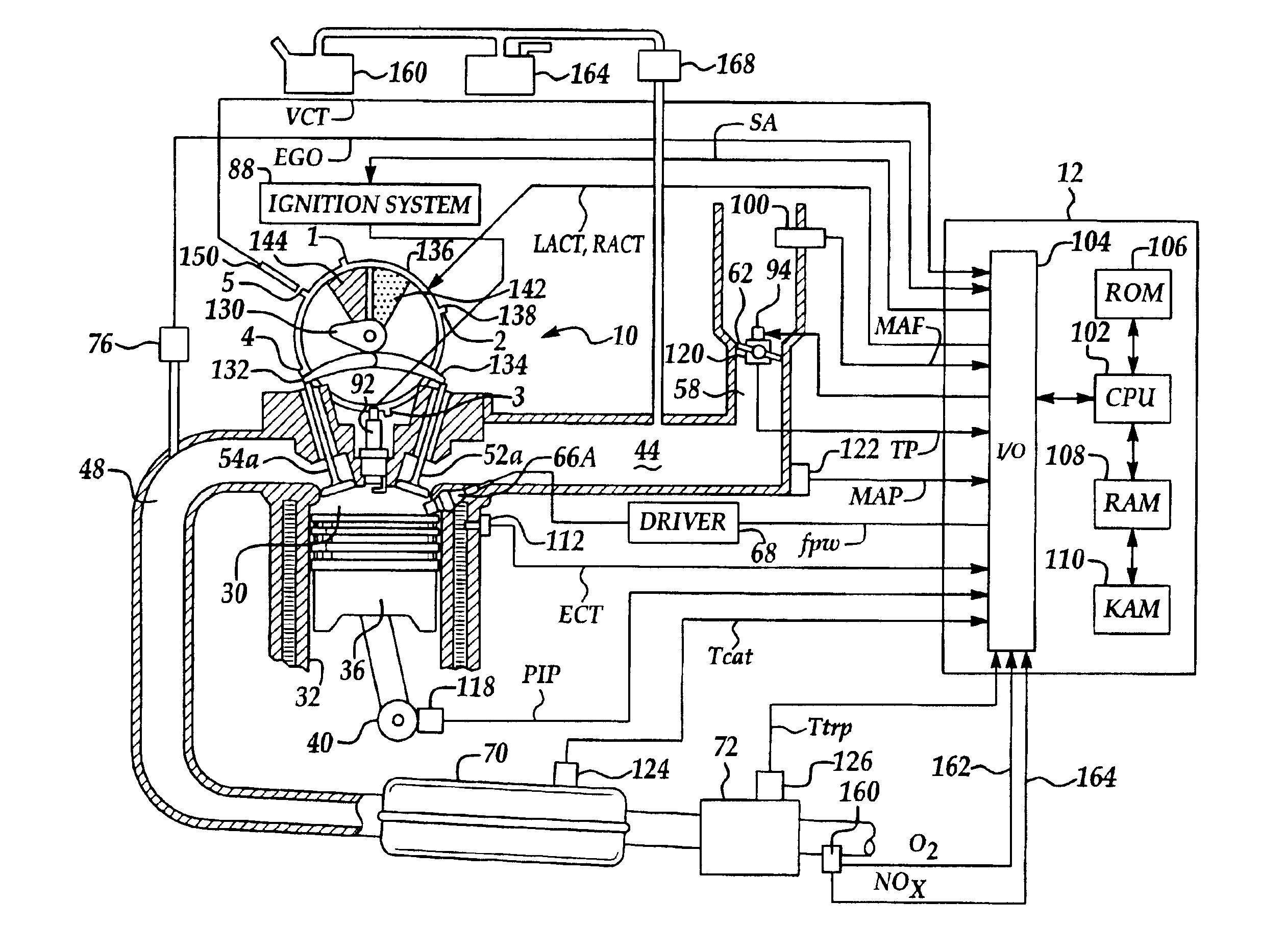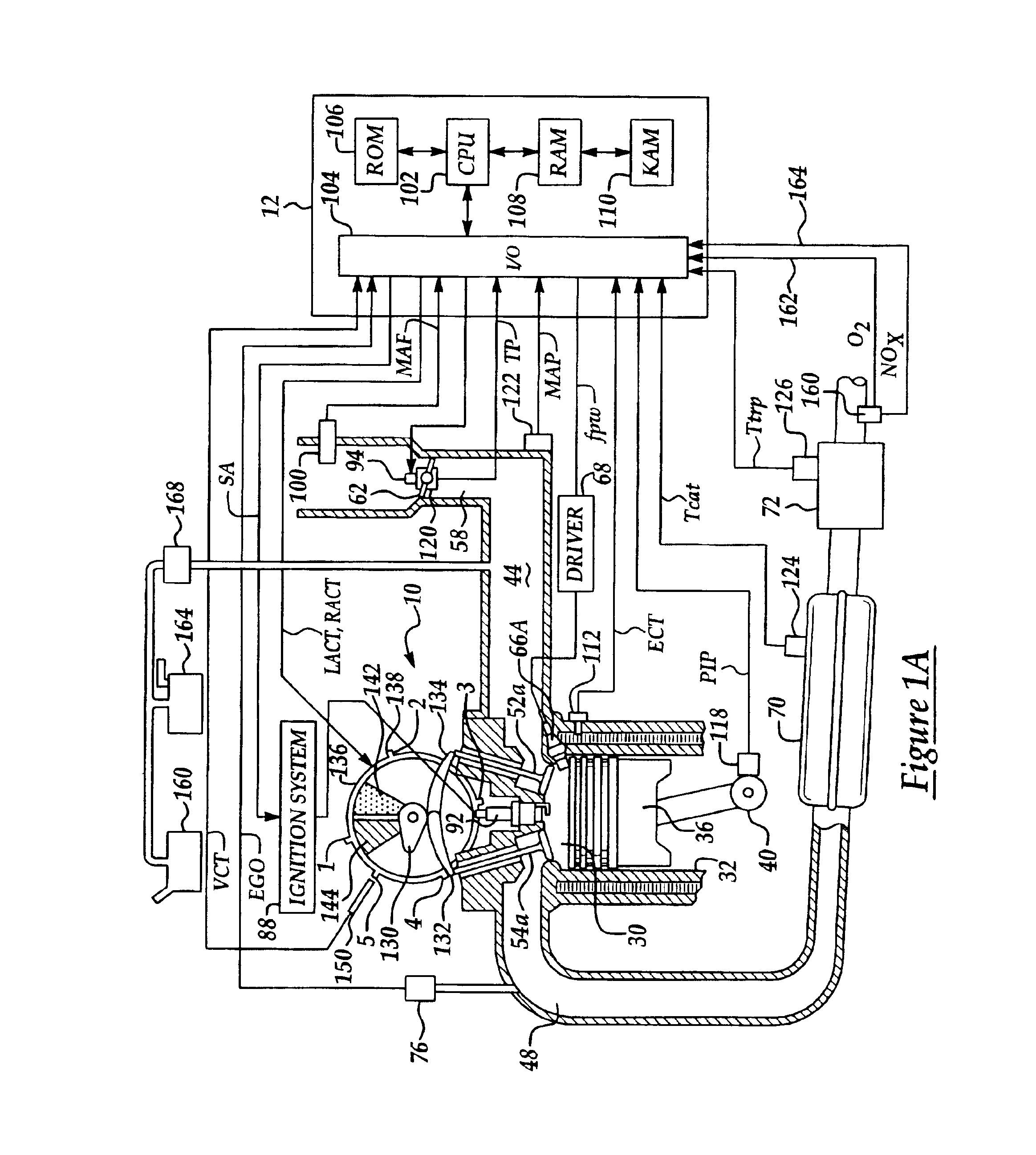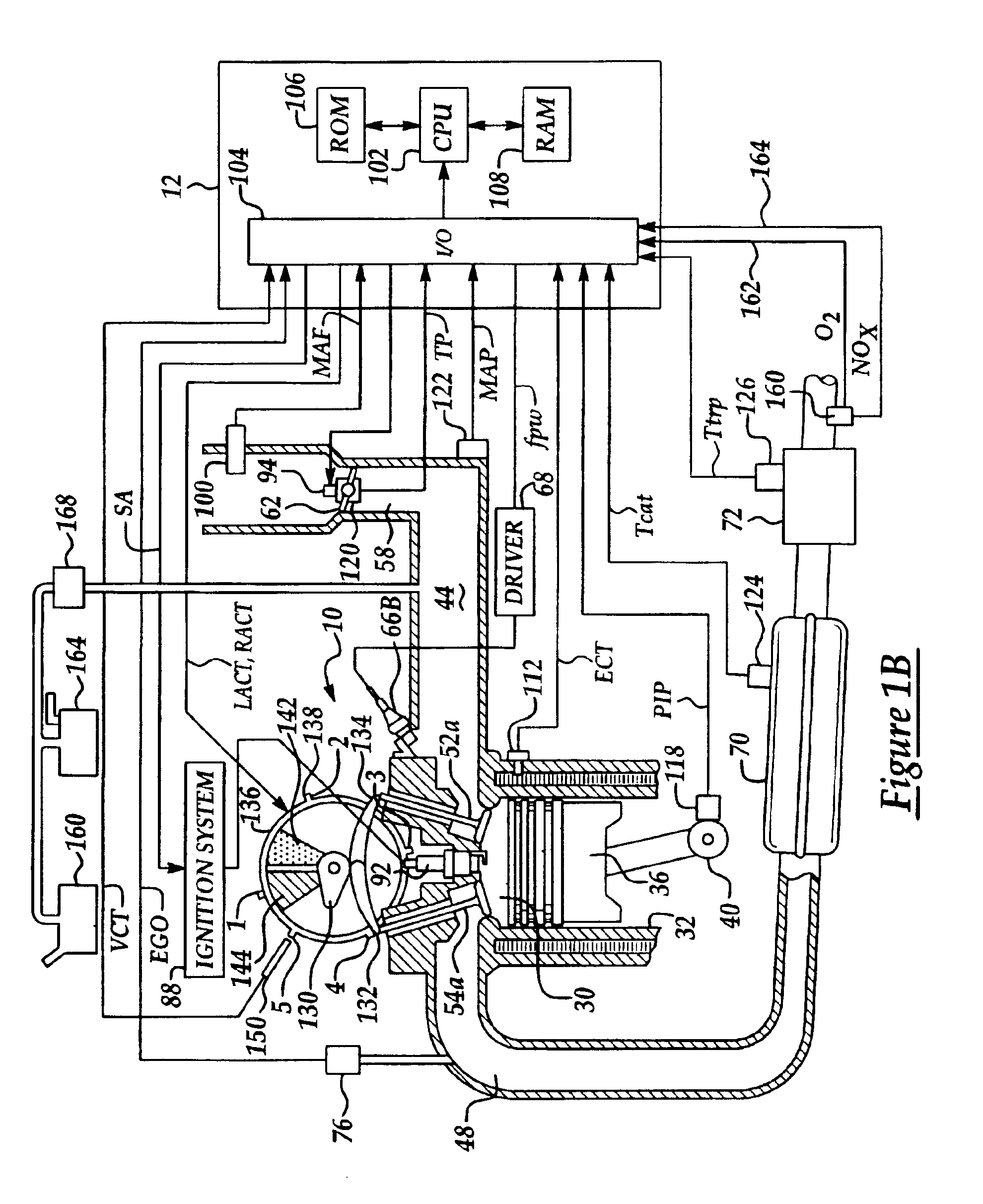Method for rapid catalyst heating
a technology of catalyst heating and control strategy, which is applied in the direction of electric control, speed sensing governor, machines/engines, etc., can solve the problems of reducing the pumping work of those cylinders, and achieve the effects of increasing heat, increasing engine load condition, and increasing ignition timing retard
- Summary
- Abstract
- Description
- Claims
- Application Information
AI Technical Summary
Benefits of technology
Problems solved by technology
Method used
Image
Examples
example 2
of FIG. 13I illustrates operation according to the present invention. In particular, the ignition timing of the second group (spk2') is substantially more retarded than the ignition timing of the first cylinder group of Example 2 (spk2). Further, the air and fuel amounts (a2, f2) are greater than the air amounts in Example 1. As a result of operation , the first cylinder group produces engine torque (T2), while the second cylinder group produces engine torque (T2). In other words, the first cylinder group produces more engine torque than when operating according to Example 1 since there is more air and fuel to combust. Also note that the first cylinder group of Example 2 has more ignition retard from optimal timing than the ignition timing of group 1 of Example 1. Also, note that the engine torque from the second cylinder group (T2') is less than the engine torque produced by the first and second cylinder group of Example 1, due to the severe ignition timing retard from optimal timi...
PUM
 Login to View More
Login to View More Abstract
Description
Claims
Application Information
 Login to View More
Login to View More - R&D
- Intellectual Property
- Life Sciences
- Materials
- Tech Scout
- Unparalleled Data Quality
- Higher Quality Content
- 60% Fewer Hallucinations
Browse by: Latest US Patents, China's latest patents, Technical Efficacy Thesaurus, Application Domain, Technology Topic, Popular Technical Reports.
© 2025 PatSnap. All rights reserved.Legal|Privacy policy|Modern Slavery Act Transparency Statement|Sitemap|About US| Contact US: help@patsnap.com



